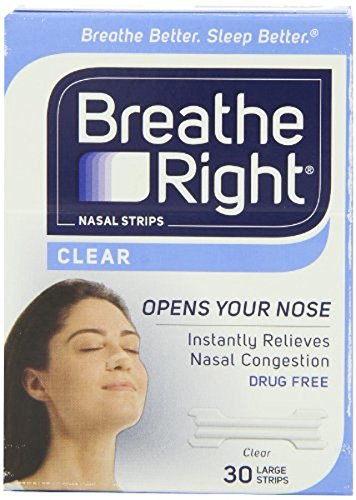About half of all adults snore occasionally, and about a quarter snore regularly. While it’s sort of a funny topic, and often joked about in sitcoms, snoring can cause real issues in the bedroom. Whether it’s keeping you from getting the deep, restful sleep you need, or waking up your spouse at all hours (if they can get to sleep at all), snoring can create a boatload of tension. It’s worth your physical and relational health to try to get a handle on your noisy nighttime muffler.
Snoring is more common in men than women, and tends to get worse as one ages and/or gains weight. It happens when the free flow of air from the mouth/nose to the lungs is interrupted and vibration at the back of the throat occurs, for a variety of reasons: congestion, illness, poor muscle tone in the mouth/jaw, and a few more serious health concerns.
For most folks, there are natural remedies that can reduce and even eliminate their snoring. For others, however, it can be a sign of some form of sleep apnea, wherein your breathing temporarily pauses in the night, causing you to snore loudly and even occasionally jolt yourself awake. Less than 5% of people are diagnosed with sleep apnea, but it’s estimated that up to 80% of sufferers are undiagnosed.
If you try the below steps and don’t see any improvement in your snoring, it’s best to seek out a medical professional. Do not buy mouth guards or anti-snore devices without medical consultation, even from your dentist — any device going in the mouth can have an effect on your teeth and general oral well-being.
First, though, try the advice below. Odds are good that you’ll see at least some improvement, if not a total cessation of your snoring problems.
1. Lose a few pounds.
That turkey wattle you get during the holidays is hurting more than just your appearance. As weight increases, so does the prevalence of snoring. Extra poundage just generally compresses things and closes your airways more than they would be otherwise. You actually accumulate fatty tissue in the neck and back of the throat, and that tissue is “floppy” — rather than being rigid like muscle. It therefore vibrates when breathing deeply in and out during sleep.
 Breathe Right Nasal St...
Buy New $12.69
(as of 08:05 UTC - Details)
Breathe Right Nasal St...
Buy New $12.69
(as of 08:05 UTC - Details)
In many people, the neck is one of the areas of the body that both loses and gains weight quickly. That’s both a positive and a negative; just a few pounds off the scale should help you out, but just a few pounds added back on and you may be in trouble again. Among the numerous benefits that come with weight loss, a decrease in snoring is likely one, and may provide some extra motivation.
2. Change your sleep position.
Lying on your back can cause your tongue and soft palate to fall back into your throat and partially block your airways, leading to snoring. Try sleeping on your side instead; memory foam mattresses help with this, as does a body pillow if you’re having a hard time adjusting.
3. Avoid alcohol.
Booze can make people snore who don’t normally do so. Beyond just stuffing you up, as beer and other alcoholic beverages can often do, alcohol relaxes the muscles too much, leading to fluttering and vibrating while sleeping. Not only will abstaining from alcohol for the 3-4 hours before bedtime just generally improve your sleep cycle, it’ll also curb your snoring. It’s a hard thing to do, especially with socializing at night, but keep it in mind if snoring is giving you or your loved one real problems.
4. Get enough sleep.
If you’re consistently not getting enough sleep (that means 7-9 hours for the vast majority of folks), this deprivation may be the cause of your snoring woes. Being over-tired makes your muscles floppier, leading to snoring. Check out these 22 tips to give yourself a better night’s sleep.
5. Keep nasal passages open.
 Enjoy Better Sleep - S...
Buy New $9.99
(as of 08:05 UTC - Details)
Enjoy Better Sleep - S...
Buy New $9.99
(as of 08:05 UTC - Details)
Nasal congestion is a major cause of snoring; this is why someone who’s typically a non-snorer will become a nighttime rhino when he’s sick. If you have a cold, or are just naturally regularly congested, try taking a hot shower before bed (showers are better than baths because of the steam that circulates when in an enclosed space), or use a neti pot. Nasal strips are also worth trying.
6. Keep your room clean!
Allergens and dust can be a cause of snoring. Regularly dust your bedroom, including your ceiling fan if you have one. Wash your bedding regularly (you shouldn’t need a reminder on that one!). Vacuum often, including the curtains. Get your air ducts cleaned every couple years. Also don’t allow pets to sleep on the bed if you have snoring problems.
7. Stay hydrated.
Dry mouths lead to dry noses and throats. This can lead to build-ups of gunk and general irritation and swelling, leading to congestion and blockage. Drink plenty of water, help your snoring.





